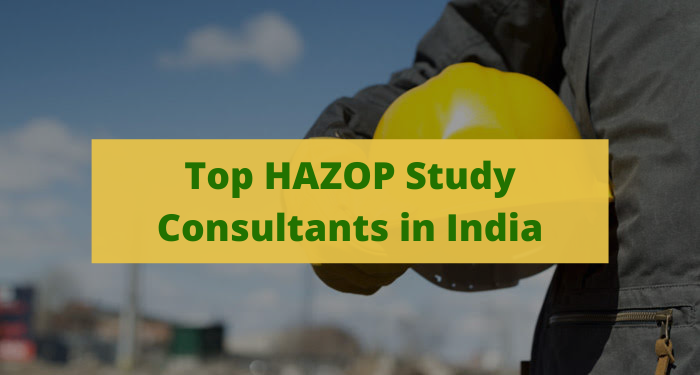Why Safety Audits Are Essential for Thailand’s Growing Industries in 2025

HAZOP, LOPA, and SIL Study Services in Thailand – Ensuring Safe Operations
November 5, 2025
HIRA & Risk Assessment Best Practices for Punjab-Based Food-Processing Plants
November 10, 2025Introduction: The Shift Toward Industrial Safety in Thailand
As Thailand’s economy continues its upward trajectory in 2025, industrial sectors such as petrochemicals, manufacturing, automotive, and food processing are experiencing exponential growth. With expansion, however, comes responsibility—particularly the responsibility to maintain world-class safety standards. Safety audits are no longer optional compliance checks; they are strategic tools that ensure sustainable, safe, and efficient operations.
In an era when ESG (Environmental, Social, and Governance) compliance and international safety norms shape business viability, companies that neglect safety audits risk not only accidents but also reputational and financial damage.
The Purpose and Power of a Safety Audit
A Safety Audit Consultant plays a critical role in evaluating a facility’s safety management systems, procedures, and physical conditions. These audits identify potential hazards, verify regulatory compliance, and suggest actionable improvements.
Safety audits help organizations answer key operational questions:
- Are safety protocols in line with Thailand’s Occupational Safety and Health Administration (OSHA) guidelines?
- Are employees aware of emergency procedures and preventive practices?
- Is equipment inspection and maintenance being carried out regularly?
By systematically addressing these questions, safety audits help companies mitigate operational risks, reduce downtime, and improve overall efficiency.
Rising Industrial Risks in Thailand: Why 2025 Is a Turning Point
Thailand’s industrial growth is accompanied by greater complexity in production lines, automation, and energy use. As factories expand and adopt advanced technologies, they also face new categories of risk—from chemical leaks and fire hazards to system malfunctions and human error.
In 2025, the Thai government continues to tighten safety regulations in line with international standards such as ISO 45001 and OSHA 1910. Companies failing to comply may face heavy fines, license suspensions, or loss of credibility with investors.
A comprehensive Hazop Study is one of the most effective methods to identify and control potential hazards in complex processes before they result in incidents. Conducted by trained safety professionals, it ensures that every part of a process is evaluated for deviations that could lead to accidents or inefficiencies.
Types of Safety Audits Every Industry Must Conduct
Different industries require specialized safety audits depending on the nature of their operations. Some essential audits include:
1. Fire Safety Audits
Fires are among the most common and devastating industrial accidents. A Fire Audit Consultant evaluates fire detection systems, suppression equipment, evacuation plans, and employee training programs to ensure facilities meet national and international fire safety codes.
A well-conducted Fire Safety Audit Service goes beyond compliance—it helps in designing fire prevention strategies that can save lives and protect property.
2. Process Safety Management Audits
High-risk industries such as oil & gas, chemical manufacturing, and pharmaceuticals rely on efficient processes involving hazardous materials. A Process Safety Management Consultant ensures that every stage—from design to operation—is secure, monitored, and compliant with safety regulations. This not only prevents catastrophic failures but also fosters a culture of continuous safety improvement.
3. Behavioral Safety Audits
Human behavior accounts for a significant portion of workplace accidents. Engaging a Behavior-Based Safety Consultant helps organizations train and guide employees to recognize unsafe actions and replace them with safer habits. This approach builds a proactive culture where employees take ownership of safety rather than viewing it as an imposed rule.
The Role of Safety Audits in Sustainability and Compliance
Sustainability is now a core business priority across Thailand’s manufacturing and industrial ecosystem. Safety audits ensure compliance not only with legal frameworks but also with international certifications that enhance global trade credibility.
Well-documented safety audits demonstrate a company’s commitment to sustainability by:
- Minimizing environmental impact through proper waste and chemical management
- Reducing energy consumption by improving operational efficiency
- Enhancing employee well-being, which leads to higher productivity and retention
In short, safety audits bridge the gap between operational performance and environmental responsibility.
Benefits of Regular Safety Audits
Regular safety audits provide tangible and long-term benefits to organizations, including:
- Accident Prevention: Identifying and mitigating risks before they result in incidents.
- Cost Reduction: Minimizing losses from equipment damage, compensation claims, and production downtime.
- Regulatory Compliance: Avoiding penalties and maintaining operating licenses.
- Enhanced Reputation: Building trust with clients, investors, and regulatory bodies.
- Employee Confidence: Empowering workers by ensuring they operate in a safe, well-managed environment.
In industries where a single accident can cause multimillion-dollar losses, these benefits make regular audits indispensable.
The Growing Demand for Skilled Safety Professionals in Thailand
As industries evolve, so does the need for trained professionals capable of conducting technical audits and safety evaluations. Companies are increasingly seeking certified experts in HAZOP Training Services in India and process safety management.
Professionals trained in these disciplines can identify root causes of hazards, design prevention strategies, and train employees effectively. This growing demand has created cross-border collaboration opportunities with reputed organizations that provide expert-level safety training and consulting services.
Case Example: Industrial Expansion and Safety Oversight
Consider Thailand’s Eastern Economic Corridor (EEC), home to thousands of manufacturing and logistics hubs. As the area continues to attract global investment, the pressure on safety systems has multiplied. Companies that initially viewed safety audits as mere formalities now see them as tools for operational excellence.
Organizations that collaborate with a Safety Consultant in India or other international experts gain an edge through:
- Advanced risk assessment techniques
- Globally recognized training programs
- Proven strategies for incident reduction
- Integration of digital tools like IoT-based safety monitoring
By adopting these best practices, Thailand’s industries are positioning themselves for sustainable growth and global competitiveness.
The Economic Impact of Neglecting Safety Audits
Ignoring safety protocols can be devastating—both humanly and financially. Industrial accidents lead to injuries, fatalities, and long-term brand damage. Moreover, they often trigger costly lawsuits and insurance claims that can cripple smaller companies.
In Thailand’s competitive market, even one major safety lapse can cost millions in lost contracts and trust. Safety audits are, therefore, an investment—not an expense—that safeguards both profits and people.
Future of Industrial Safety in Thailand: Digital Integration and Predictive Analysis
The next phase of industrial safety is digital. In 2025 and beyond, Thai industries are increasingly adopting predictive analytics, IoT-based sensors, and AI-driven inspection systems to improve their safety audits.
These technologies provide real-time data that allow early detection of potential hazards, improving preventive maintenance and reducing accidents. However, even advanced technology cannot replace human expertise—trained auditors remain essential to interpret, assess, and act on data insights.
By combining technology with regular audits, Thailand can achieve a zero-accident vision that aligns with its Smart Industry 4.0 roadmap.
Building a Culture of Safety: Beyond Compliance
True safety excellence goes beyond paperwork and inspections—it’s about fostering a mindset that prioritizes people’s well-being. Companies that make safety an integral part of their work culture experience higher morale, stronger team collaboration, and better productivity.
Leadership commitment is crucial here. Management must not only approve audits but actively participate in implementing recommendations. Regular workshops, refresher courses, and transparent communication help reinforce this culture across all levels.
Conclusion: The Road Ahead for Thailand’s Industrial Safety
As Thailand stands at the forefront of Southeast Asia’s industrial expansion in 2025, the importance of safety audits cannot be overstated. These audits are the backbone of sustainable growth—ensuring that progress does not come at the cost of safety or human life.
From process industries and construction to logistics and energy, every sector benefits from professional auditing and consultation. By collaborating with experts like Safety Consultant in India and leveraging tools such as Hazop Study and Fire Safety Audit Service, Thailand’s industries can ensure a future where safety and productivity coexist seamlessly.
In 2025 and beyond, safety is not just compliance—it’s competitiveness, credibility, and compassion in action.




